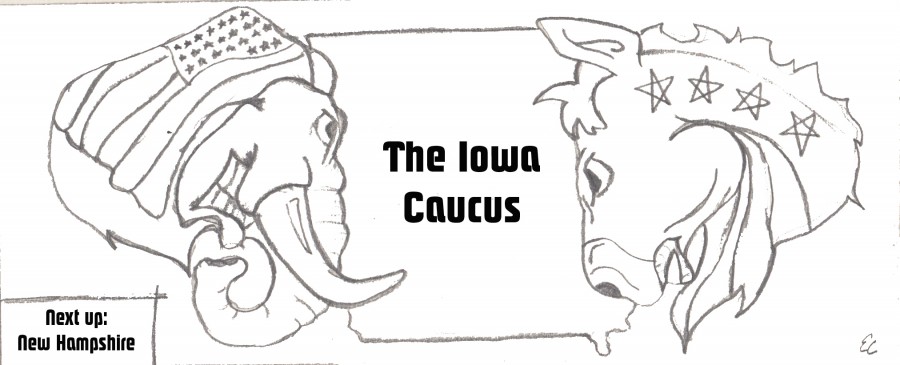Iowa caucuses not as important as thought
March 2, 2016
On Tuesday, Feb. 1, over 350,000 Iowans came to caucus, but how much do the results actually matter? They really don’t.
Caucuses are a system of voting where a group of voters meet and gather by their candidate of choice and they take verbal or paper ballots to determine the candidates and number of delegates.
The Iowa caucuses have a history of predicting the wrong candidates and do not have the influence they’re thought to have on the national elections because of their small percentage of electoral votes.
The polls from before the caucus showed Donald Trump beating Ted Cruz by up to 50 percent more, but in the 2016 Iowa caucuses Cruz beat Trump by 3.4 percent.
Even after Trump’s loss in Iowa, he came back in the New Hampshire primary and won 35.1 percent of the votes, versus Cruz’s 11.6 percent.
As few as four weeks ago, CNN showed Hilary Clinton dominating Bernie Sanders 54-36, while at the Iowa caucuses Clinton won by only .3 percent.
In the New Hampshire primary Sanders won 13 delegates, while Clinton only won nine.
This demonstrates how much voters’ opinions and choices can fluctuate over such little time and depending on their location.
A state such as Iowa has a very different population than many states because it is rural, conservative, and has a large evangelical population.
Iowa isn’t a typical state; therefore, their polls turn out very different than the average state’s would.
Since the success rate is so low, candidates are putting too much time and effort in a state that is not known for predicting the final candidates and altering their appearance to appeal to the specific Iowan crowds.
Studies show that in past Iowa caucuses the percentage of winners that actually became the final candidates is very low and unpredictable.
Without including the unopposed candidates the republican prediction rate since 1976 is 42 percent.
Because the Iowa caucuses are first, they get the most attention, but the order of primaries and caucuses has no real meaning.
The New Hampshire primary has a better record of nominating the future candidates than Iowa.
The point of the caucus isn’t exactly to predict the future candidates; it’s for voters to be heard, but it is often perceived as a reliable source of representation for the future.
Voters should not be influenced by the caucuses or primaries. Many candidates that have lost the first few have made come backs and candidates that have won, have ended up dropping out.
Until at least 10 electoral events have happened, there is no clear view of the results.
The Iowa caucuses are a great way to get involved and prepare for the elections, but other than boosting excitement and participation, they are useless.

